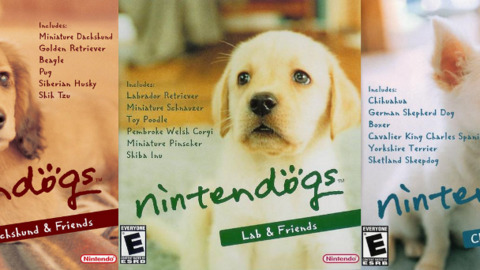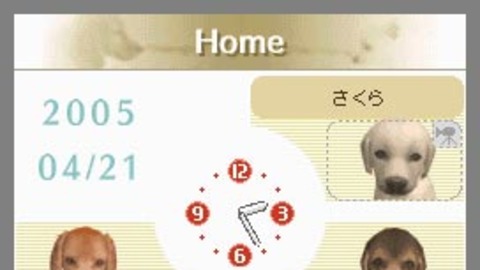Overview
Taking advantage of the massive appeal of puppies, Nintendogs allows players to raise several breeds of dog up from the puppy stage and contribute to their development. Nintendogs makes full and extensive use of the DS hardware, allowing players to use both the microphone and stylus to interact with their virtual dog. The player can use the microphone to create custom voice commands to control their dog, and through this system the dog can be trained to do follow, sit, play dead, and so on. The game was released simultaneously in three varieties -- Dachshund & Friends, Lab & Friends, Chihuahua & Friends -- which offered the same core game but differed in the breeds of dog on offer.
Gameplay
In general, the player uses the bottom screen and stylus to manipulate the environment and interact with the dog by petting it, grooming it, and performing other actions designed to make the player a good dog owner and the dog a happy puppy. Players can purchase supplies and toys for the dog, and as they earn more money, more dogs and environments become available. The dogs have a full range of needs and wants, and if the player discourages the dog or doesn't play the game for a significant amount of time, the dog will become unhappy or even run away and the player will need to start the game again.
Reception
Nintendogs has proven itself to be inordinately popular, especially among the female demographic, and upon its initial release drove the sale of many DS units in Japan and the United States. Nintendogs was very well received by critics; it was awarded numerous high scores, and received the coveted maximum score of 40 from Famitsu, which had only awarded the score six times previously in its history. Nintendogs is also responsible for creating a wide range of clones and "me-too" titles which cashed in on its success.
Nintendogs has sold 23.96 million copies combined across all three versions as of March 31 2016.

 Nintendo DS
Nintendo DS






























